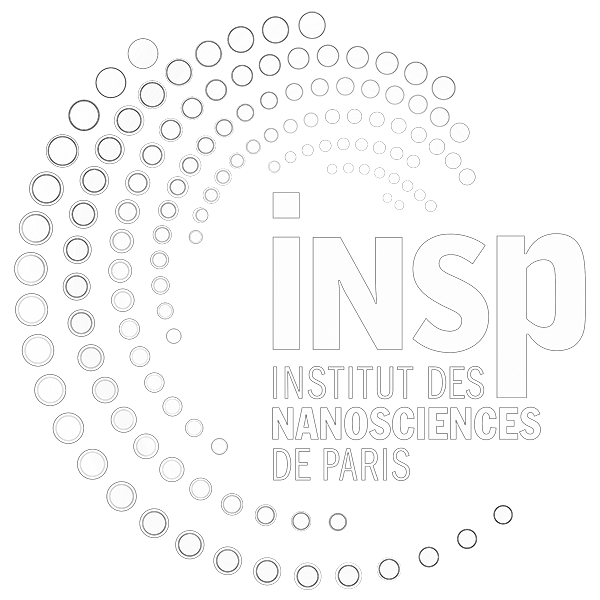Nouvelles méthodes pour la dynamique quantique des noyaux atomiques et application aux spectres vibrationnels
Financement :
Description :
Début : 2017
Fin : 2020
Doctorant.e : Thomas Plé
Equipe(s) : Oxydes en basses dimensions
Page des thèses de(s) l'équipe(s) : Oxydes en basses dimensions
Etat de la thèse : Thèse soutenue
Mardi 15 décembre 2020 à 14 h 30
Abstract
Most atomistic simulations treat nuclei as classical particles but this approximation is insufficient for many relevant applications in particular in systems where light atoms, such as hydrogen are involved. Simulating dynamical properties of materials and molecules, such as vibrational spectra while accounting for the quantum nature of the nuclei is a particularly challenging task. Practical approaches generally combine sampling of a set of quantum initial conditions with their classical time-evolution. In this thesis, we developed a new approximation for the sampling of the initial conditions according to the Wigner quantum density [1]. We show that this new approximation is more accurate than most existing methods and is able to capture highly non-classical effects such as quantum « negative probabilities » and position-momentum correlations. We also developed a perturbative analysis to examine more in detail the performance of different initial conditions sampling approaches to capture anharmonic spectral features such as overtones and combination bands. Our results highlight the importance of capturing some inherently quantum aspects of the Wigner distribution (in particular position-momentum correlations) in order to reproduce fine spectral features which are often considered out-of-reach of this type of methods due to their lack of quantum coherence effects. Finally, we apply the recently introduced adaptive quantum thermal bath method [2] to the simulation of condensed-phase water and show that it provides accurate quantum results with a numerical cost comparable to classical simulations.
[1] T. Plé, S. Huppert, F. Finocchi, P. Depondt, and S. Bonella, « Sampling the thermal Wigner density via a generalized Langevin dynamics », J. Chem. Phys. 151, 114114 (2019) [2] E. Mangaud, S. Huppert, T. Plé, P. Depondt, S. Bonella, and F. Finocchi, « The fluctuation-dissipation theorem as a diagnosis and cure for zero-point energy leakage in quantum thermal bath simulations », J. Chem. Theory Comput., 15, 5, 2863–2880 (2019)Jury
- Prof. Stuart Althorpe (referee),
- Prof. Michele Ceriotti (referee),
- Prof. Delphine Cabaret,
- Dr. Federica Agostini,
- Dr. Philippe Depondt,
- Prof. Sara Bonella (co-supervisor),
- Dr Simon Huppert (co-supervisor),
- Dr. Fabio Finocchi (supervisor).

